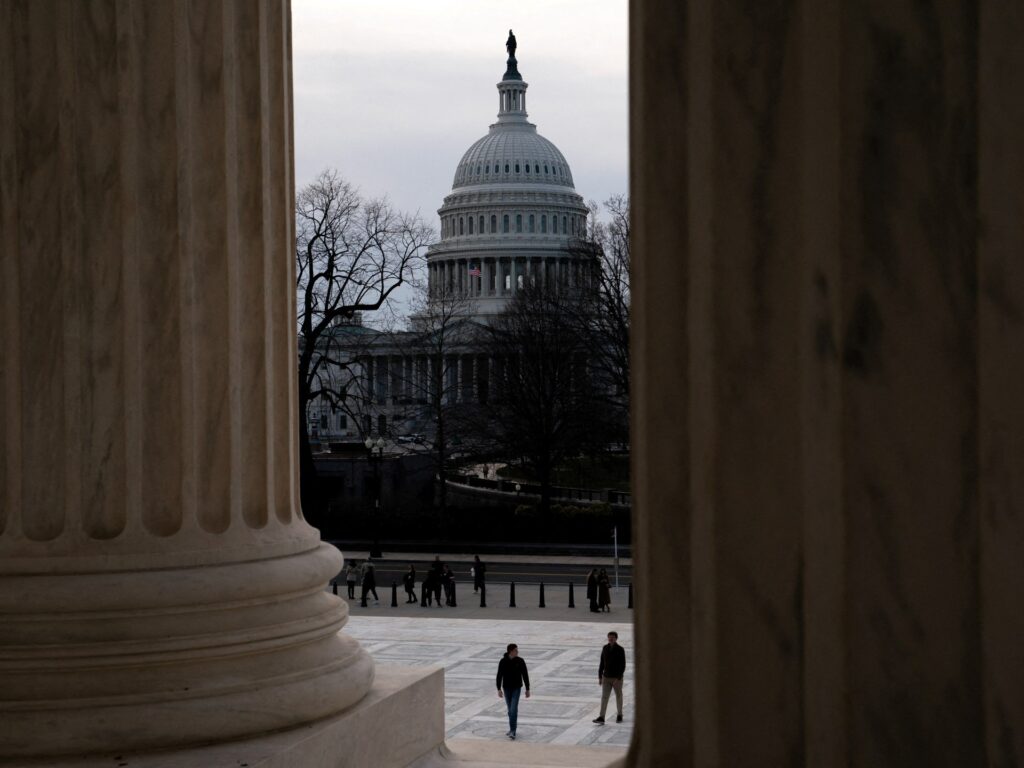The bill will be passed after hours of deadlock over funding for three-quarters of the government for the next six months.
US senators passed a $1.2 trillion spending bill, narrowly avoiding a partial government shutdown.
The House approved the bill by a vote of 74-24 on Saturday after three-quarters of the government's funding expired at midnight. But the White House issued a notice shortly after the deadline, announcing that the Office of Management and Budget had halted preparations for the shutdown because it had high confidence that Congress would pass the bill and the president would sign it on Saturday.
Key federal agencies, including the Department of Homeland Security, which oversees the Internal Revenue Service, the Department of Justice, the State Department and the Treasury Department, will continue to receive funding through September 30 after the bill passes the Democratic-controlled Senate.
But the bill does not include funding, primarily for military aid to Ukraine, Taiwan and Israel, that was included in a separate bill passed by the Senate but ignored by the Republican-led House. do not have.
The bill would also eliminate U.S. funding for the United Nations Relief and Works Agency for Palestine Refugees (UNRWA), which provides critical on-the-ground services to Palestinians in Gaza and across the Middle East, until March 2025.
The agency lost millions of dollars in U.S.-led international aid after Israel claimed that some of its staff in the Gaza Strip were involved in the Oct. 7 Hamas-led attack.
The House voted 286-134 on Friday, narrowly securing the two-thirds majority needed to approve six of the largest and most controversial federal funding bills.
More than 70% of the funding goes to defense, and the bill also includes military, homeland security, health care and other services. Funding for these programs was scheduled to expire on March 22nd.
“It's been a very long and difficult day, but we've reached an agreement to get the job done: funding the government,” said Senate Democratic leader Chuck Schumer.
“It's good for the country that we reached this bipartisan agreement. It wasn't easy, but our persistence tonight was worth it,” he added.
We have just reached an agreement to complete the Government funding job tonight.
It wasn't easy, but tonight it was worth the persistence.
Reaching this bipartisan agreement is good for the American people.
— Chuck Schumer (@SenSchumer) March 23, 2024
It took lawmakers six months into the current fiscal year to move closer to the government funding finish line, but they called for more policy mandates and deeper spending cuts than the Democratic-led Senate and White House are considering. The process was delayed by conservatives.
The impasse necessitated several short-term stopgap spending bills to keep agencies funded.
The first package of full-year spending bills, which would provide funding to the Departments of Veterans Affairs, Agriculture and the Interior, among others, came two weeks ago with just hours left before funding for those agencies expires. It was passed by Congress.
The House vote reflected anger among Republicans over the contents of the package and the speed with which it was voted on. In the end, House Speaker Mike Johnson brought the bill to the floor, even though a majority of Republicans voted against it.
In a bid to win support from Republicans, Prime Minister Johnson touted his plan to secure about 8,000 additional detention beds for migrants awaiting immigration and deportation, part of a roughly 24% increase from current levels. did. Republican leaders emphasized additional funding to hire about 2,000 Border Patrol agents.
Democrats, meanwhile, touted a $1 billion increase for Head Start, early childhood education programs, and the construction of new child care centers for military families. They also increased funding for cancer research by $120 million and increased funding for Alzheimer's disease research by $100 million.


